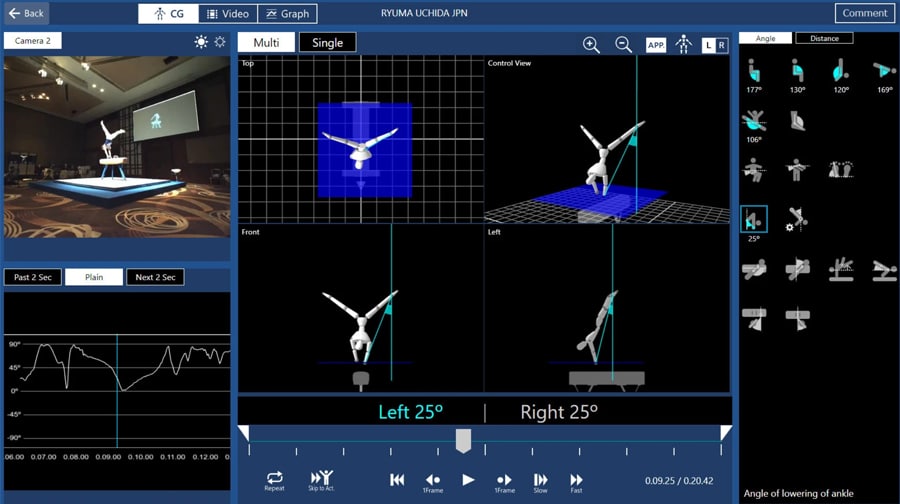Robots were used to judge this year’s World Artistic Gymnastics Championships
This year, the World Artistic Gymnastics Championships were held in Stuttgart, Germany, from 4 October to 13 October. Almost unnoticeable, were robots spread among the crowd of visitors. Don’t let your imagination run wild, the bleachers weren’t scattered with Terminator lookalikes. Instead, 30 rectangular grey boxes were assembled around the gymnasium’s floor, small and discreet enough to ignore. But to many, these boxes hold more significance—this could be “the beginning of the new history of gymnastics,” declared the President of the International Gymnastics Federation (FIG), Morinari Watanabe. But what does the new history of gymnastics entail? A much-needed change in another industry affected by corruption.
The use of sophisticated new technology in major competitions and sporting events is something that has become quite common, especially in football and tennis. Video assistant referee (VAR) technology was, at first, subject to many critics, but it ended up sticking around, because it is undeniably fairer and more objective. Even when it comes to gymnastics, video technology was already being used to judge and analyse. But, until now, full video review was only used after a competition to judge the judges’ performance, not the athletes’, as judges could favour athletes from their own federations or dislike a specific athlete. In the last few years, judges’ malpractice has plagued gymnastics competitions (the 2004 Summer Olympics in Athens being the biggest example). That’s where artificial intelligence comes in.
This newly-introduced technology, invented and designed by the Japanese company Fujitsu, can measure height, body angles, and the number of degrees by which a gymnast splits her legs, in three dimensions, and from any direction. The small boxes go as far as measuring whether a rotation is complete and count whether a certain position is held for three seconds or not.

In Stuttgart, the set of three-dimensional laser sensors tracked the movements of each of the 547 participating gymnasts from 92 different nations. Before the event, gymnasts had their bodies digitally scanned by Fujitsu for the new technology to be able to analyse every little bit of data the athletes generate while competing. That data was then fed to an AI system accessible to the human judges. The system analysed skeletal positions and speeds as the athletes went through their movements. Because the Fujitsu technology has been successfully used at the World Artistic Gymnastics Championships, it is now said to be potentially implemented at the 2020 Olympic Games.
The gymnasts are having their bodies digitally scanned by Fujitsu for use in the new technology that will support judging at the #Stuttgart2019 World Championships. It only takes a moment!
— FIG (@gymnastics) October 2, 2019
👉 https://t.co/uz0efQUOzS pic.twitter.com/K1zCG2s5sX
Although it is only here as a support for human judges for now, this technology could soon replace judges altogether. This means the nature of judged sports, such as gymnastics, diving, synchronised swimming, figure skating, snowboard, ski jumping and freestyle skiing, would change. But with any type of change come worries, and people seem to always react strongly when AI gets involved—be that in art, religion, or even in fashion. For gymnastics, sceptics already fear that the technology could help people manipulate results in an even more transparent way than before, while others believe in the possibility that it would erase any type of corruption.
The real question is will there be a time when human judges are eliminated completely? It stays unclear, but at the moment, AI is not yet sophisticated enough to completely replace human judges. Amplifying human intelligence with artificial intelligence has the potential of helping civilisations flourish, as well as reducing human error. Still, intelligence also enables control, and there is always the possibility that, one day, AI could turn competent and develop goals misaligned with ours. Managing and keeping technology beneficial only depends on us. Then again, this argument could be put aside when used in sports or artistic industries, for artistry and mastery can’t only be examined through skills, but also based on the emotion they evoke in humans—something that robots have not attained just yet.





